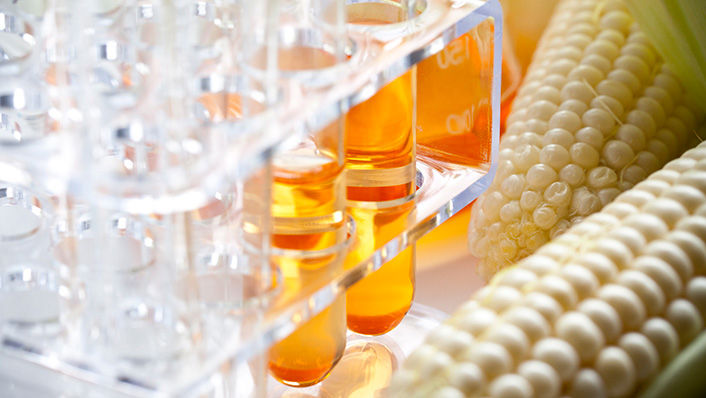Refine Biomass-based Diesel
TRISYL® silica improves productivity of renewable fuel plants and reduces solid waste disposal

TRISYL® silicas purify renewable feedstocks
Why renewable diesel?
Renewable fuels are essential to reduce total greenhouse gas emissions, build energy security, and improve domestic economies. As more countries, governments, and industries work to reach carbon neutrality, renewable diesel will become a primary source of fuel for road and aviation transportation across the globe. Biorefineries convert liquid biomass feedstock like fats, oils, and greases into renewable fuels. First, this feedstock is pretreated primarily to remove phosphorous- and metal-based contaminants that can foul equipment and deactivate valuable catalysts during refining.
An alternative approach to pretreatment
Feedstock pretreatment requires an adsorptive process to physically remove the impurities from the oil matrix. Although acid-activated clays can remove problematic contaminants to a large extent, pretreatment processes based on this traditional technology require large quantities of the adsorbents because of their intrinsic physical and morphological properties. Grace’s TRISYL® silica adsorbents offer an alternative approach, transforming highly contaminated renewable fuel feedstock into liquid gold at a fraction of the dosage. TRISYL® silicas adsorb polar and ionic impurities to efficiently pretreat low-quality biomass feedstocks regardless of the free fatty acid content, allowing biofuel refiners to extract the most value from their investments.
TRISYL® silicas outperform acid-activated clays for biofuel refining because of their large surface area—1 teaspoon of TRISYL® silica has a surface area of about 7,000 m2, the size of a standard soccer field. This enhances the adsorption capacity of TRISYL® silicas compared with acid-activated clays.
By switching from acid-activated clays to TRISYL® silica adsorbents, biorefineries can reduce filter cake waste by up to 85% and can ultimately save up to 90% in pretreatment costs. Greater adsorption efficiency means less adsorbent material is required for pretreatment. This means less filter cake waste is generated, and associated feedstock losses are minimized. Consequently, landfill disposal costs are reduced while productivity increases without having to secure additional feedstock.
Grace’s technologists have developed a full portfolio of TRISYL® silica adsorbents designed to meet the specific refining challenges of different feedstocks. No matter where your business is located, Grace can produce and supply TRISYL® silica reliably from multiple locations worldwide.
TRISYL® silica grades for your specific needs
Contact our team to learn more about how Grace’s global network of refining experts and manufacturing facilities can connect you with the best TRISYL® silica adsorbent for your biomass-based diesel feedstock pretreatment needs.

